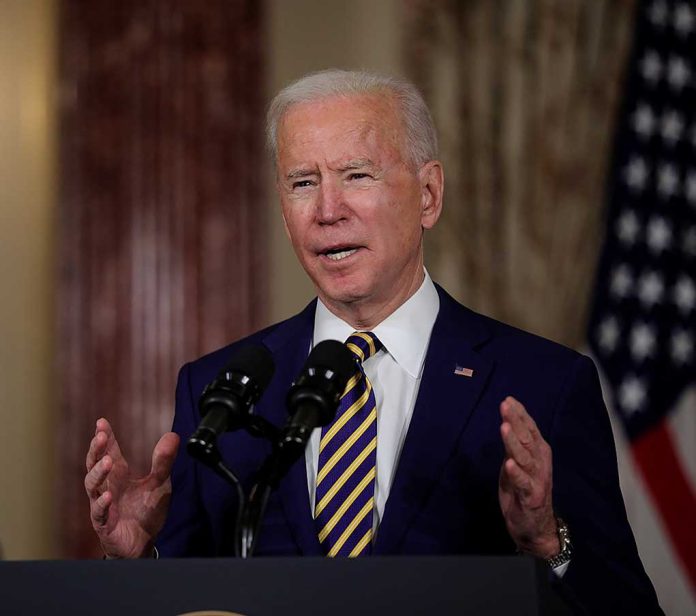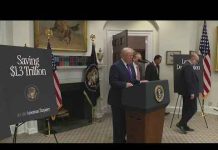
Controversy brews as the Biden administration allocates $3 million to Palestinian Authority Security Forces, raising fears over regional stability.
Key Takeaways
- The Biden administration allocated over $3 million to the Palestinian Authority Security Forces (PASF) for firearms and ammunition training.
- This funding was part of a larger $20 million package for regional security projects in the West Bank, Gaza Strip, Lebanon, and Jordan.
- Concerns have been raised due to PASF’s ties to terrorism and its involvement in over 1,500 attacks against Israelis in 2023.
- The Trump administration had previously frozen U.S. funds to the Palestinian Authority due to its support for terrorism.
- The State Department assured that firearms and ammunition funded would only be used for training purposes.
Biden Administration’s Bold Move
The Biden administration’s recent decision has drawn significant concern from various quarters, as it projected over $3 million in funding to the Palestinian Authority Security Forces weeks before leaving power, as reported by The Washington Free Beacon. Unveiled through a nonpublic congressional notice, this allocation is part of a $20 million security initiative across the region. Critics are alarmed that such financial aid could embolden groups with connections to terrorist activities, thereby destabilizing an already delicate region. This move underscores the ongoing debate over U.S. support for foreign organizations with contentious pasts.
Rep. Michael McCaul voiced his objections, pointing to the PASF’s historical ties with terrorism and their apparent inability to maintain peace within the West Bank. Data supporting these concerns include over 1,500 PASF-related attacks on Israelis this year. Critics argue the funding could inadvertently benefit elements within the PASF aligned with terrorist factions. The administration insists, however, that the allocated funding strictly supports training endeavors.
Analyzing PASF’s Alleged Ties and Impacts
The PASF, drawing a portion of its membership from the Palestinian Fatah movement, reportedly has known connections to terrorism. Their controversial track record stirs concerns about the possible misuse of financial aid. Despite the Biden administration’s assurance of regulated purposes, skepticism remains. The $3 million aid allocation, part of a broader $20 million initiative within the West Bank, Gaza Strip, Lebanon, and Jordan, seeks to refine security forces’ skills and resources.
“The PASF have demonstrated an ongoing inability to maintain order in the West Bank, a fact made more concerning by emerging reports of the group’s ties to terrorism in the region,” McCaul told Free Beacon.
Noteworthy within this scope is the PASF’s missing compliance in past orders and the recurring pattern of aligning with conspiratorial bodies. The PASF’s request for an additional $680 million over the upcoming years further magnifies apprehensions around their commitment to genuine peace efforts and stability. The narrative of tactical misuse motivates critics continuously arguing the potential of these funds fomenting wider regional conflicts.
100 times President Biden Supported Israel
One of the most essential values in Judaism is gratitude. People prefer to think of themselves as independent and not in need of any assistance. Offering our appreciation to someone who helps us is an important trait in recognizing… pic.twitter.com/vUKDEOELaa
— Uri Pilichowski (@RationalSettler) November 14, 2024
Funding Utility and Assurance
Providing clarification, the U.S. State Department expressed that the PASF would utilize aid strictly for training aims, reassuring concerned parties. Training activities, supposedly restricted to the Jordan International Police Training Center, represent an attempt at stabilizing PASF competencies. Contextually, Hamas and its affiliates, previously inciting administrative restrictions, emphasize a pressing need for vigilance surrounding these efforts.
Emerging debates question how this funding can satisfy both political allies and neutral observers across global platforms, given the region’s turbulent history. With past U.S. administrations exhibiting varied stances on such allocations, the Biden administration’s decision remains a pivotal talking point among critics projecting potential threats to secure peace prospects.


